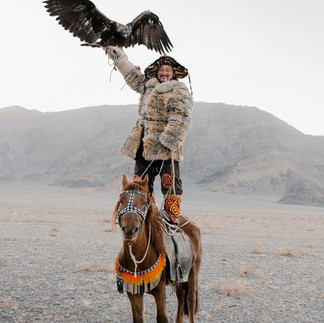World Indigenous Peoples Day: Celebrating Their Culture And Protecting Their Rights
- Alex Gerlach
- Aug 9, 2021
- 3 min read
Updated: Jun 19, 2022
On December 23, 1994, the United Nations General Assembly gathered and decided that August 9 will be International Day of the World’s Indigenous People. This day is meant to encourage the world to help protect and promote the rights of indigenous people.
At Pedacitos, we are dedicated to building a global community of allies and support for people of any background. Together, we have the power to help protect the cultures and lives of indigenous people.
Today, Storyteller Alex is going to share the diversity of indigenous cultures and how we can all be better allies for these marginalized populations.
"Indigenous people" refers to the 5,000 culturally distinct groups of people native to various countries around the world. Also known as the “first people,” they have very unique beliefs, customs, and languages that are strongly tied to their lands or territories.
In fact, indigenous people speak about 4,000 different languages and many of them were born out of the natural environments they inhabit.
The environment also influences other aspects of indigenous culture, including their spiritual beliefs. Nature and the ecology of specific regions are often closely intertwined with a specific group or tribe’s sacred practices. Each group’s customs are unique, however, they do share a few fundamental principles:
Spirits imbue all living things
Equality amongst people
Value for the natural world
The spiritual beliefs and practices of indigenous people also influence their role as protectors of and advocates for the environment. They are estimated to contain 80% of the earth’s biodiversity and are responsible for protecting 11% of the planet’s forests.
But their role as conservationists is just one example of the integral part they play in the preservation of our world’s environment, culture, and history.
Protecting The Rights Of Indigenous People
According to the United Nations, 476 million people worldwide are indigenous. Despite how large that number seems, they only make up 6.2% of the global population. And like other marginalized groups, Indigenous people face many challenges and injustices at the hands of larger governments that threaten their lands, customs, and rights.
Current statistics show that:
Indigenous communities are three times more likely to experience extreme poverty
Women and girls disproportionally face high rates of violence
One indigenous language dies every two weeks
In light of worsening conditions for indigenous people and the exacerbation of the COVID-19 pandemic, the United Nations announced the theme of this year’s World Indigenous Peoples Day is “Leaving no one behind: Indigenous peoples and the call for a new social contract.” But what does this mean?
A social contract is an informal agreement between two parties to cooperate for social and economic benefits. As central governments rise up and expand, they often infringe on the lands and rights of native peoples, resulting in the continued loss of their language and culture.
Adherence to social contracts protects indigenous people from these inequalities, encouraging legislative reform and equal opportunity.
How To Be A Genuine Ally
There is power in allyship and advocacy when there isn’t easy or local access to social communities and organizations. But that doesn’t mean we don’t have the power to create change in our environments through education and inclusivity. Some ways you can practice allyship include:
Amplify the voices of indigenous people and communities
Understand indigenous history and culture
Support and credit indigenous businesses
Here at Pedacitos Blog, we are dedicated to connecting the world and initiating positive change through our personal experiences. We encourage our community and readers to use the below resources to learn more about the stories of indigenous people around the world.
Resources:
Want to know more? Are you interested in becoming a contributor for Pedacitos? We'd love to hear your stories! Send me a message and I will get back to you!

























I'm glad that you took the time to highlight this important issue. We must acknowledge that the land we call home was the home of others before we got here. While we can't undo the past, we can continue to become more educated and spread awareness so as to not repeat history.